coffee and tea
You don't need a fancy setup to make coffee or tea at home. In this piece, I share my home coffee and tea setup so you can enjoy your daily caffeine fix or a cozy hot drink. The setup is:
- Basic - The tools are easy to use and easy to clean.
- Budget - Everything is <=$30 as of June 2021.
- Small - I live in an apartment and don't have space for large gadgets.
Here's an outline. In each section, I include more info and references if you want to be fancier.
coffee
I'm not picky about coffee. Thinking about coffee quality reminds me of this comic. If you take coffee with milk or sugar, it can obscure the finer details. I always have coffee with plant milk, so it's harder to tell the nuances of light or dark roast, bean origin, or brewing method.
Here's my coffee setup in order of fanciness:
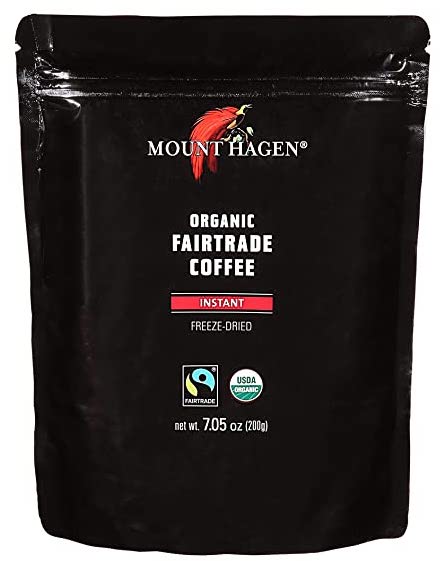
|
Instant coffee is convenient. You don't need any equipment - just dissolve in water. It's good when you don't want to brew coffee or if you want to bake a chocolate cake. For iced coffee, dissolve in a bit of hot water and then pour over ice. |
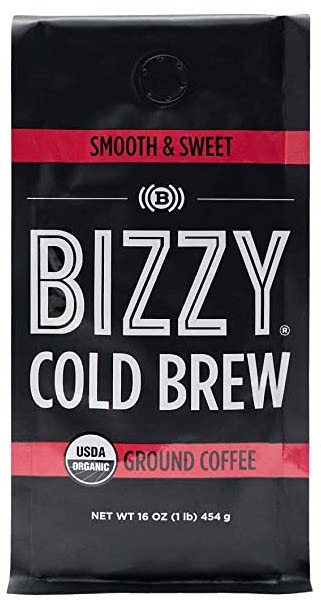
|
Pre-ground coffee requires a brewing contraption. The coffee grounds don't dissolve in water, so you have to filter them out. I use a French press so I can make cold brew overnight. Some other methods are the AeroPress or pourover. Don't pour coffee grounds down the sink. I did, and it broke the garbage disposal. The kitchen sink didn't work for a few days. You should discard most of the coffee grounds before rinsing. |
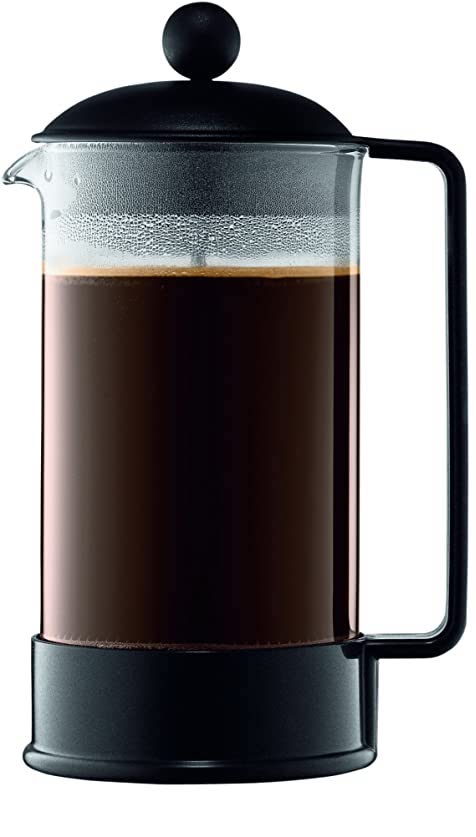
|
I use a
34 ounce French press
to make cold brew coffee. Here's how:
|
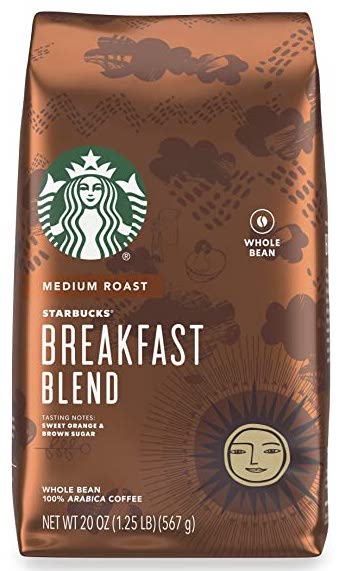
|
Whole bean coffee requires a grinding and a brewing contraption. Grinding your own coffee is more work, but tastes fresher. Like spices, coffee beans lose flavor after being ground. |
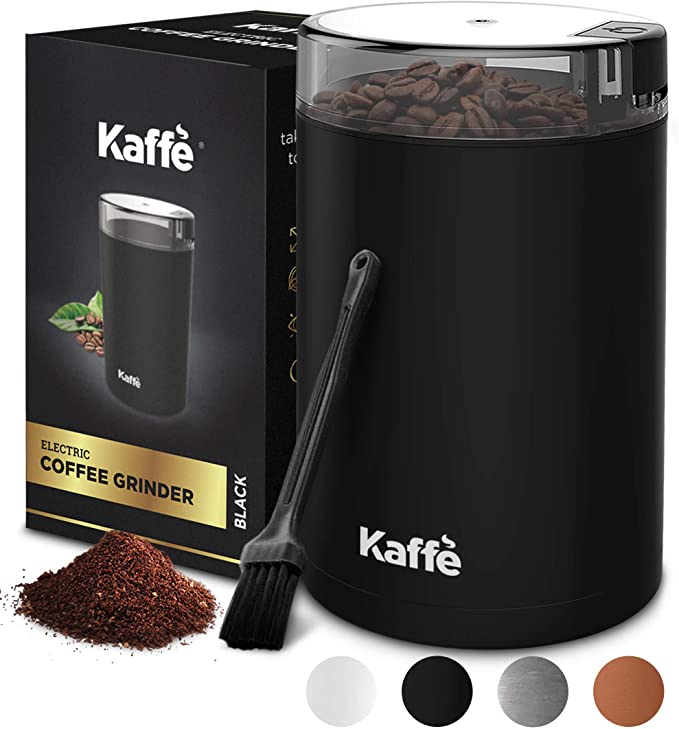
|
I use a cheap blade coffee grinder (~$20). If you want a more even grind, you can invest in a Burr grinder (~$100). I don't care that much about the nuances of the grind. Blade grinders are often used for spices. However, don't use the same grinder for coffee and spices unless you want your coffee to taste like cumin. |
tea
To make tea, put tea in hot water, wait, remove the tea, and drink. The package of tea will have more detailed instructions. If you want to better understand tea, you can look at a few factors in the process:
- Type of tea: Did you know green, oolong, and black teas all come from the same plant? They only differ in the level of oxidation - how bruised the leaves are. Green teas are less oxidized and have fresher, grassy flavors while black teas are more oxidized and have toastier flavors. Teas made from other plants (i.e. chamomile, rooibos) are herbal teas.
- Water temperature: Different types of tea taste better when steeped at different temperatures. For example, if you use boiling water for green tea, then it can taste bitter or burnt. You can measure water temperature, or you can eyeball the kettle. Here is a guide to what water looks like at different temperatures.
- Steep time: Teas have different steep times. For example, herbal tea can have a longer steep time (7-10 minutes) than green or black tea (3 minutes).
- Tea bag vs. loose leaf: You can buy chopped up tea leaves in tea bags or whole, loose leaf tea. Loose leaf tea tastes fresher, but requires more work to filter out the tea leaves. I recommend using a mini strainer to do so.
- Ratio of tea to water: For tea bags, it suffices to use 1 tea bag and about 1 cup of water. If you make loose leaf tea, it helps to measure the amount of tea and water so you don't get a watery cup.
You can brew tea in cold water, but it's more finicky. Different teas have different steep times. For example, leaving green tea overnight (8 hours) is too long and results in a bitter cup. If you want iced tea, steep in a small amount (~1/4 cup) of hot water so your drink doesn't get diluted. Then, pour over ice.
Here's my tea setup:
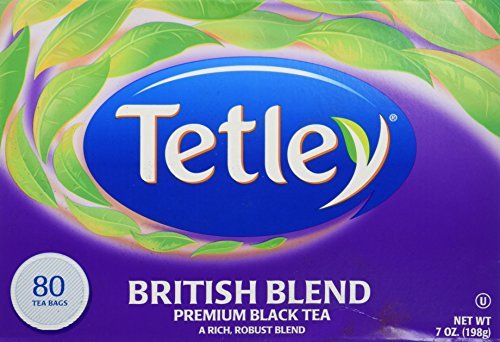
|
Black tea is good for breakfast or an afternoon pick-me-up. It goes well with plant milk and pastries. For black tea, use water with big bubbles (~200 degrees F) and steep for 3 minutes. |
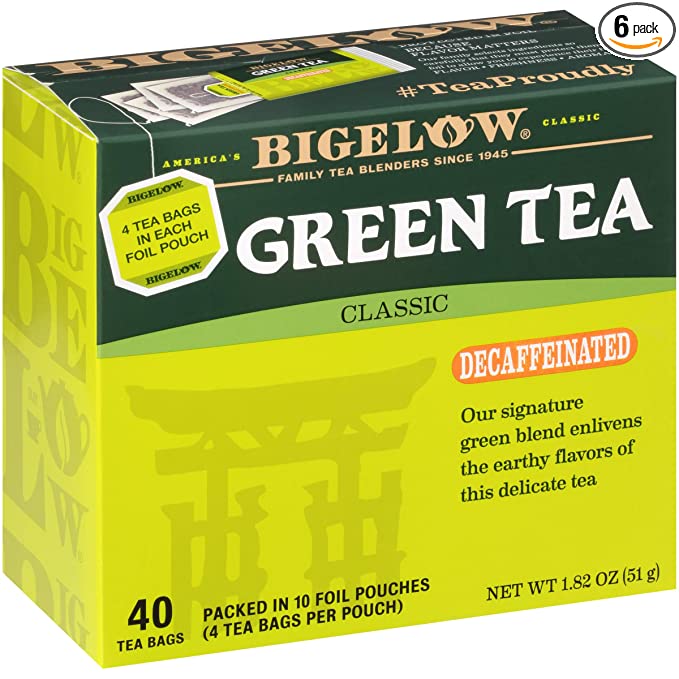
|
Decaf green tea is good at any time of day. It's excellent iced. For green tea, use water with little bubbles (~170 degrees F) and steep for 3 minutes. |
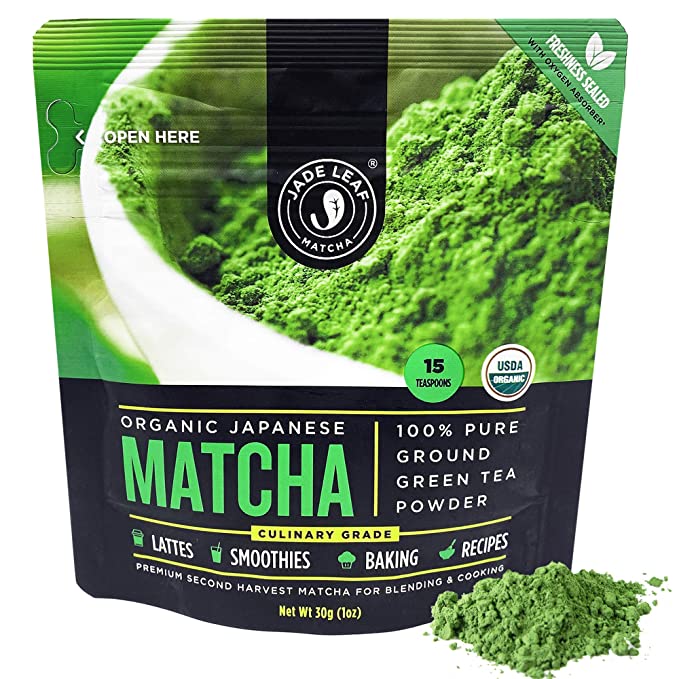 |
Matcha is ground up green tea that you dissolve in water. To make matcha, first add a tiny amount of water to the matcha, and stir to dissolve. This prevents powdery clumps in your drink. Like with green tea, use water with little bubbles (~170 degrees F). |
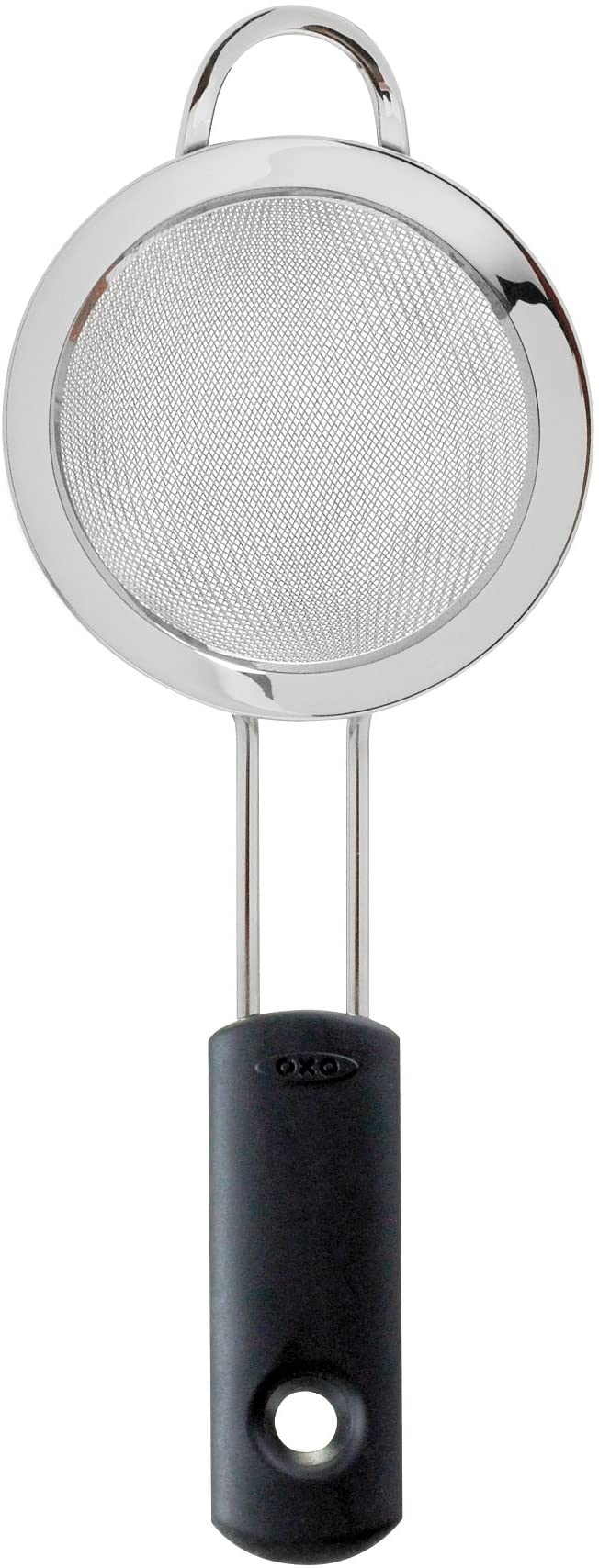
|
For loose leaf tea, I use a mini strainer. It is easier to clean and use than other tea contraptions (i.e. refillable tea bags, mesh tea balls). It is also useful for straining custard or chickpeas. If you're in San Francisco, I recommend doing a loose leaf tea tasting at Song tea. You'll learn a lot about different types of tea. They also sell loose leaf teas - I'm a big fan of the winter sprout. |
misc
Here are some handy gadgets for making coffee or tea.
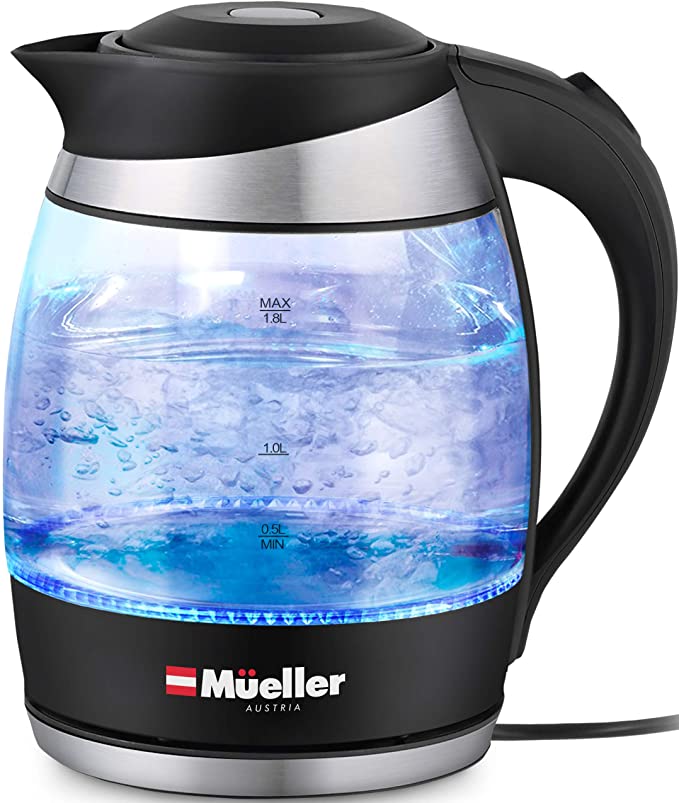 |
I use a simple electric kettle. It doesn't tell you the water temperature, but you can eyeball it. Water with little bubbles is ~170 degrees F, and water with big bubbles is ~200 degrees F. See reference images. |
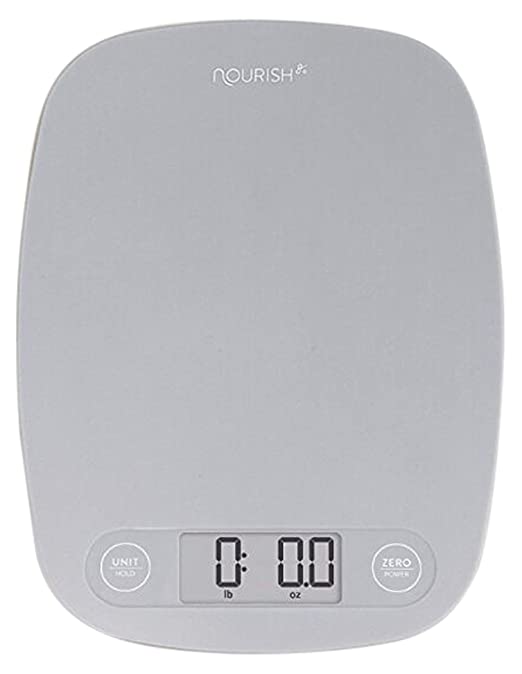 |
A kitchen scale is good for measuring coffee or loose leaf tea. Measuring by weight is more precise than measuring by volume - volume varies depending on the coffee grind or tea leaf density. A scale is also good for baking. When baking, it's less messy to measure ingredients by weight since you don't have to clean so many measuring cups. |
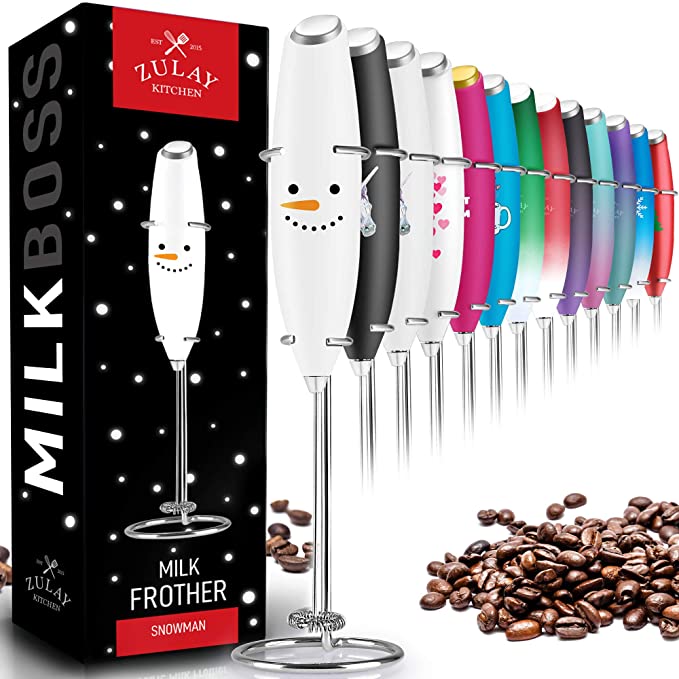
|
A
milk frother
is nice to have if you like fluffy drinks. To use:
|
conclusion
There is no ideal coffee and tea setup, just one that works for you. The main requirements are:
- Easy to use: When I visited my parents, I tried to make a cup of tea. It took me a few minutes to figure out how to boil water in the electric kettle - it only worked if you pressed a specific spot. I bought my parents a new kettle.
- Brings you joy: I like the process of making coffee or tea. My kettle has a soothing blue light. I'm chuffed with my snowman milk frother - it's adorable and practical.
How do you feel about your coffee and tea setup? Is there anyhting you want to upgrade?